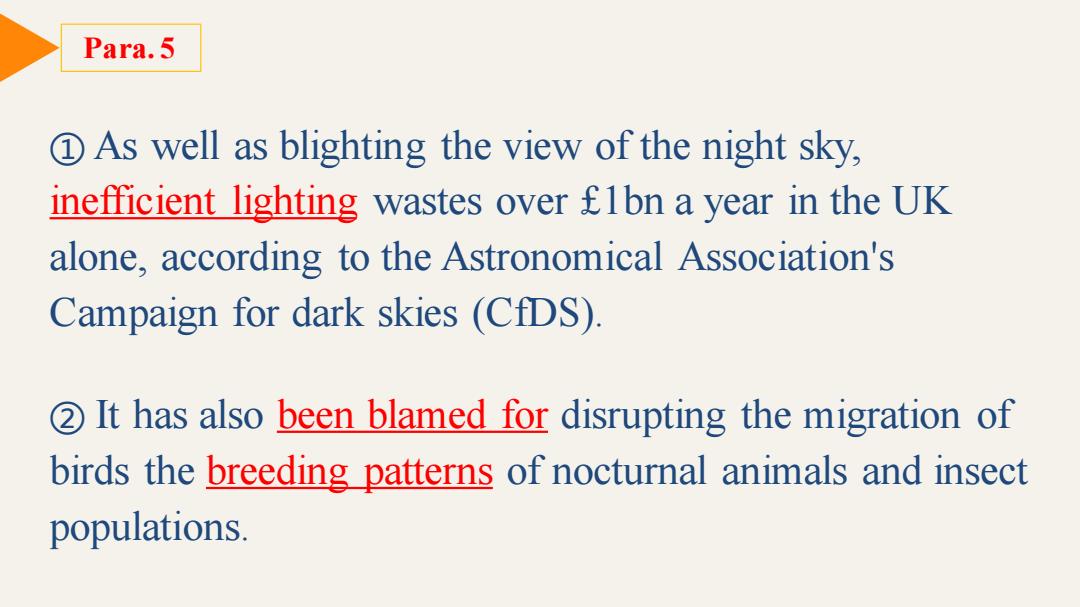
Para.4 Lighting at night is a complicated,often emotive issue as it provides valuable benefits as well as creating problems.But campaigners say they do not want all artificial lighting turned off at night,just the huge amount that is needlessly shone into the sky every year Sentiments shared by the Royal Commission
Lighting at night is a complicated, often emotive issue as it provides valuable benefits as well as creating problems. But campaigners say they do not want all artificial lighting turned off at night, just the huge amount that is needlessly shone into the sky every year. Sentiments shared by the Royal Commission. Para. 4

Para.5 D As well as blighting the view of the night sky, inefficient lighting wastes over flbn a year in the UK alone,according to the Astronomical Association's Campaign for dark skies (CfDS). 2 It has also been blamed for disrupting the migration of birds the breeding patterns of nocturnal animals and insect populations
① As well as blighting the view of the night sky, inefficient lighting wastes over £1bn a year in the UK alone, according to the Astronomical Association's Campaign for dark skies (CfDS). ② It has also been blamed for disrupting the migration of birds the breeding patterns of nocturnal animals and insect populations. Para. 5

Para.5 ③ Research has shown it disrupts people's sleep patterns,while one study has suggested a link to breast cancer
③ Research has shown it disrupts people's sleep patterns, while one study has suggested a link to breast cancer. Para. 5

Para.5 As well as blighting the view of the night sky, inefficient lighting wastes over flbn a year in the UK alone,according to the Astronomical Association's Campaign for dark skies (CfDS).It has also been blamed for disrupting the migration of birds,the breeding patterns of nocturnal animals and insect populations. Research has shown it disrupts people's sleep patterns, while one study has suggested a link to breast cancer
As well as blighting the view of the night sky, inefficient lighting wastes over £1bn a year in the UK alone, according to the Astronomical Association's Campaign for dark skies (CfDS). It has also been blamed for disrupting the migration of birds, the breeding patterns of nocturnal animals and insect populations. Research has shown it disrupts people's sleep patterns, while one study has suggested a link to breast cancer. Para. 5

Para.6 So with increasing calls for artificial light to be used only "when and where it is needed",what are the possible solutions to help ease the problem?
So with increasing calls for artificial light to be used only “when and where it is needed”, what are the possible solutions to help ease the problem? Para. 6